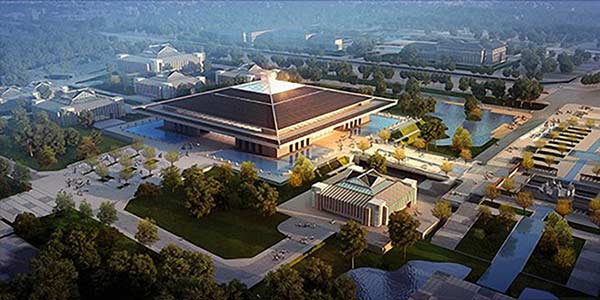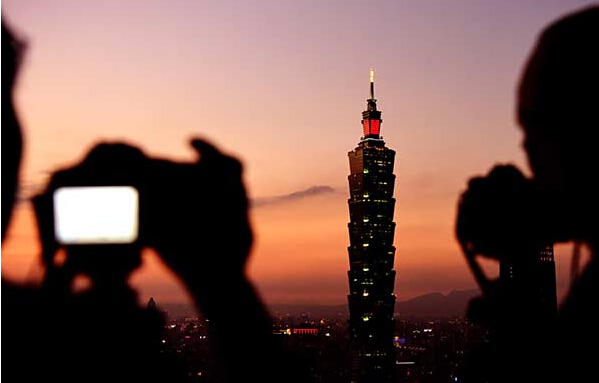Confucius Museum to be opened in Shandong
|
|
|
An artist’s impression of the newly-built Confucius Museum in Qufu, Shandong province. [Photo/Xinhua] |
The Confucius Museum in Qufu, Shandong province – the birthplace of China’s most famous sage – will be opened in the second half of this year, a local official said on Wednesday, describing it as the country’s first comprehensive museum to focus on Confucius (551-479 BC) and his ideology.
“Work on the exhibition center, the main building of the museum complex, has been completed, while detailed work on exhibition platforms and landscaping is underway,” said Zhang Lizheng of the Qufu Culture Industry Park where the museum is located.
The museum complex, with a total investment of 700 million yuan ($102 million), consists of an exhibition center and six subordinate halls, covering a total of 57,000 square meters.
The museum is a cultural project showcasing Confucian teachings and relics collected by generations of Confucius, as well as a place to learn about traditional culture, said Yang Jinquan, deputy head of the Qufu bureau of cultural relics.
Construction of the museum started in 2013, but was disrupted due to financial issues and discussions over how to present the essence of Confucian thoughts and teachings in the most accurate way.
Local government statistics show that by the end of last year, a total of 380 million yuan had been spent on the museum.
Yang Chaoming, head of the Confucius Research Institute in Qufu, said the museum is of great importance.
“Currently, people learn Confucian teachings mainly from textbooks and at the Confucius Temple. At the museum, visitors will be able to gain a more in-depth understanding about Confucius and his teachings via images, modern technologies and relics related to the sage,” said Yang Chaoming, who is also a member of the provincial political advisory body.
Yang Yitang, an expert on Confucian studies at the Jining bureau of cultural relics, said, “About 350,000 Confucius-related relics and archives that now rest in storerooms will be better protected and presented to the public, helping experts and tourists to learn about the sage.”
Teachings of Confucius, an educator and philosopher, deeply influenced later Chinese generations. He was the first Chinese to set up private schools and enroll students from all walks of life.
The government of Shandong is exhibiting the work of Confucius to promote traditional Chinese culture.
Guo Shuqing, governor of Shandong, said in his government work report at the ongoing sixth session of the 12th Shandong Provincial People’s Congress, the province’s top legislature, that Shandong will continue to promote the essence of traditional Chinese culture, completing construction of the Confucius Museum and opening it to the public this year.

